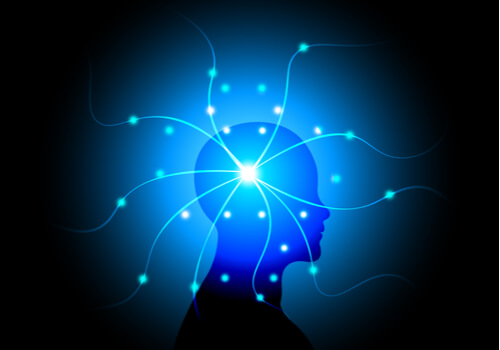Embodied Cognition: The Role of the Environment in Cognitive Processes


Written and verified by the psychologist Cristina Roda Rivera
Embodied cognition is a concept that emphasizes the role that the environment plays in the development of cognitive processes. It argues that cognitive processes develop when the organism is closely coupled with its environment.
This coupling between organism and environment influences the formation of cognitive abilities. Embodied cognition research has been conducted from various subfields of cognitive science. For example, developmental psychology, robotics, linguistics, and philosophy of mind.
All of this interdisciplinary research may ultimately merge and possibly give rise to a completely new discipline. In the meantime, the different formulations of embodied cognition thesis do share one common goal. That’s to develop cognitive explanations that capture how mind, body, and world interact and influence each other to promote the adaptive success of an organism.

Embodied cognition as an alternative to the classical cognitive view
The ideas of embodied cognition can be traced back to the works of Heidegger, Piaget, Vygotsky, Merleau-Ponty, and Dewey. However, the current thesis can be seen as a direct response and proposed alternative to these cognitivist and classicist views of the mind.
The cognitivist view conceptualizes cognitive functions in terms of a computer metaphor. In fact, the cognitivist research program can be defined as a rule-based information-processing model of cognition that:
- Characterizes problem-solving in terms of inputs and outputs.
- Assumes the existence of encoded symbolic representations. These allow the system to devise a solution through computation.
- Maintains that cognition can be understood by focusing on the internal cognitive processes of an organism. These are the processes that involve computation and representation.
Although this program of cognitivist research is still prevalent, a number of problems have been raised about its feasibility. These include the symbol grounding problem, the framework problem, the common-sense problem, and the problem described by rule/experience (Dreyfus 1992).
Embodied cognition theorists view cognitivist currents as problematic for many reasons. They tend to be especially concerned about their isolationist position. This is the attempt to understand cognition by focusing almost exclusively on the internal cognitive processes of an organism.
If an isolationist assumption is at the heart of a cognitivist research program, the resulting explanations are inaccurate. It suggests that their results downplay or overlook environmental factors. These are essential to the formation of an accurate explanation of cognitive development.
Embedded cognition: the search for greater explanatory power
The result of this isolationist assumption is a decrease in explanatory power. That’s because it neglects two crucial factors that are needed to understand cognitive development. Firstly, the exact way in which organisms are related. Secondly, the manner in which this relationship takes place within the environment.
Embodied cognition theorists favor a relational analysis that views the organism, the action it performs, and the environment in which it performs as an indissoluble link.
An example of this can be found in research such as that conducted by Thelen and Smith (1994). In this study, they examined how well babies started to reach for objects. The researchers examined four babies ranging from three weeks to one year old.
Thelen and Smith concluded that each of the four infants faced unique problems when learning to reach. These were based on their individual energy levels, body mass, and the different ways they initially tried to reach.
Given these different movements, each of the babies had to learn a different set of strategies to control their arms. Eventually, each infant was able to overcome these developmental obstacles and learn to reach for toys. However, the specific ways in which they learned this behavior varied. This depended on the particular problem they encountered.
Main concepts of embodied cognition
The defining characteristics of embodied cognition vary significantly across the disciplines that study it. Nevertheless, there are some common theoretical assumptions.
These assumptions help develop the central thesis and include:
- The primacy of goal-directed actions that occur in real-time.
- The belief that the form of realization determines the type of cognition.
- The view that cognition is constructive.
Thus, the central claim of embodied cognition is that an organism’s sensorimotor abilities, body, and environment not only play an important role in cognition. It also claims that the way in which they interact allow particular cognitive abilities to develop. Furthermore, it determines the precise nature of those abilities.
Embodied cognition versus cognitivism
Knowing the theoretical assumptions of embodied cognition and cognitivism, it’s possible to compare the research assumptions of embodied cognition with those of cognitivist research.
Cognitive perspective
Main ideas:
- The metaphor of the mind as a computer. In other words, it’s rule-based and logic-driven.
- Isolationist analysis. Cognition can be understood by focusing on the internal processes of an organism.
- Computer primacy.
- Cognition as passive retrieval.
- Codified symbolic representations.
Embodied cognition perspective
Main ideas:
- Connected with the metaphor of the mind. The form of realization plus the environment and the action changes the cognitive processes.
- The relational analysis. The interplay between mind, body, and environment must be studied to understand cognition.
- The primacy of goal-directed action that unfolds in real-time.
- Cognition is an active construction based on the embodied and goal-directed actions of an organism.
- Sensorimotor representations.

The claim of embodied cognition theorists is that new insights into previously unanswered questions about cognitive development will be gained.
The hypothesis is, that if cognitive scientists refocus their approach by recognizing the crucial links between an organism’s brain, body, and the world, they may gain insights into human behavior by integrating research from different domains.
However, this scenario raises the question: what does it mean for researchers to reorient their focus? Again, there’s no consensus among embodied cognition theorists about what this reorientation might entail. Nonetheless, maybe, in the future, things will change.
Embodied cognition is a concept that emphasizes the role that the environment plays in the development of cognitive processes. It argues that cognitive processes develop when the organism is closely coupled with its environment.
This coupling between organism and environment influences the formation of cognitive abilities. Embodied cognition research has been conducted from various subfields of cognitive science. For example, developmental psychology, robotics, linguistics, and philosophy of mind.
All of this interdisciplinary research may ultimately merge and possibly give rise to a completely new discipline. In the meantime, the different formulations of embodied cognition thesis do share one common goal. That’s to develop cognitive explanations that capture how mind, body, and world interact and influence each other to promote the adaptive success of an organism.

Embodied cognition as an alternative to the classical cognitive view
The ideas of embodied cognition can be traced back to the works of Heidegger, Piaget, Vygotsky, Merleau-Ponty, and Dewey. However, the current thesis can be seen as a direct response and proposed alternative to these cognitivist and classicist views of the mind.
The cognitivist view conceptualizes cognitive functions in terms of a computer metaphor. In fact, the cognitivist research program can be defined as a rule-based information-processing model of cognition that:
- Characterizes problem-solving in terms of inputs and outputs.
- Assumes the existence of encoded symbolic representations. These allow the system to devise a solution through computation.
- Maintains that cognition can be understood by focusing on the internal cognitive processes of an organism. These are the processes that involve computation and representation.
Although this program of cognitivist research is still prevalent, a number of problems have been raised about its feasibility. These include the symbol grounding problem, the framework problem, the common-sense problem, and the problem described by rule/experience (Dreyfus 1992).
Embodied cognition theorists view cognitivist currents as problematic for many reasons. They tend to be especially concerned about their isolationist position. This is the attempt to understand cognition by focusing almost exclusively on the internal cognitive processes of an organism.
If an isolationist assumption is at the heart of a cognitivist research program, the resulting explanations are inaccurate. It suggests that their results downplay or overlook environmental factors. These are essential to the formation of an accurate explanation of cognitive development.
Embedded cognition: the search for greater explanatory power
The result of this isolationist assumption is a decrease in explanatory power. That’s because it neglects two crucial factors that are needed to understand cognitive development. Firstly, the exact way in which organisms are related. Secondly, the manner in which this relationship takes place within the environment.
Embodied cognition theorists favor a relational analysis that views the organism, the action it performs, and the environment in which it performs as an indissoluble link.
An example of this can be found in research such as that conducted by Thelen and Smith (1994). In this study, they examined how well babies started to reach for objects. The researchers examined four babies ranging from three weeks to one year old.
Thelen and Smith concluded that each of the four infants faced unique problems when learning to reach. These were based on their individual energy levels, body mass, and the different ways they initially tried to reach.
Given these different movements, each of the babies had to learn a different set of strategies to control their arms. Eventually, each infant was able to overcome these developmental obstacles and learn to reach for toys. However, the specific ways in which they learned this behavior varied. This depended on the particular problem they encountered.
Main concepts of embodied cognition
The defining characteristics of embodied cognition vary significantly across the disciplines that study it. Nevertheless, there are some common theoretical assumptions.
These assumptions help develop the central thesis and include:
- The primacy of goal-directed actions that occur in real-time.
- The belief that the form of realization determines the type of cognition.
- The view that cognition is constructive.
Thus, the central claim of embodied cognition is that an organism’s sensorimotor abilities, body, and environment not only play an important role in cognition. It also claims that the way in which they interact allow particular cognitive abilities to develop. Furthermore, it determines the precise nature of those abilities.
Embodied cognition versus cognitivism
Knowing the theoretical assumptions of embodied cognition and cognitivism, it’s possible to compare the research assumptions of embodied cognition with those of cognitivist research.
Cognitive perspective
Main ideas:
- The metaphor of the mind as a computer. In other words, it’s rule-based and logic-driven.
- Isolationist analysis. Cognition can be understood by focusing on the internal processes of an organism.
- Computer primacy.
- Cognition as passive retrieval.
- Codified symbolic representations.
Embodied cognition perspective
Main ideas:
- Connected with the metaphor of the mind. The form of realization plus the environment and the action changes the cognitive processes.
- The relational analysis. The interplay between mind, body, and environment must be studied to understand cognition.
- The primacy of goal-directed action that unfolds in real-time.
- Cognition is an active construction based on the embodied and goal-directed actions of an organism.
- Sensorimotor representations.

The claim of embodied cognition theorists is that new insights into previously unanswered questions about cognitive development will be gained.
The hypothesis is, that if cognitive scientists refocus their approach by recognizing the crucial links between an organism’s brain, body, and the world, they may gain insights into human behavior by integrating research from different domains.
However, this scenario raises the question: what does it mean for researchers to reorient their focus? Again, there’s no consensus among embodied cognition theorists about what this reorientation might entail. Nonetheless, maybe, in the future, things will change.
This text is provided for informational purposes only and does not replace consultation with a professional. If in doubt, consult your specialist.







